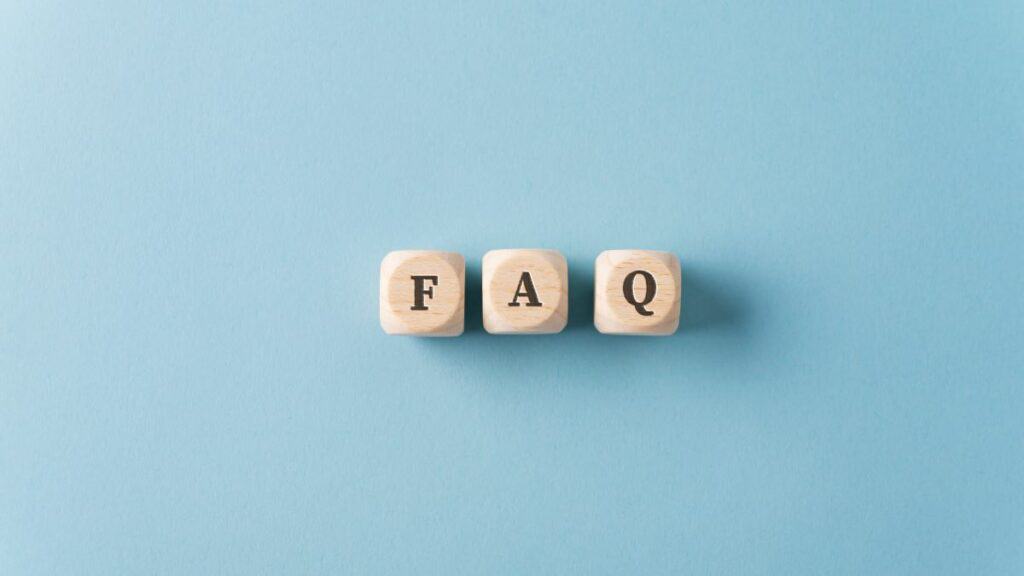Morning anxiety is a pattern of worry and nervousness that can plague individuals upon waking. This form of anxiety can set the tone for the day, often resulting in a cycle that seems difficult to break.
The anxious feelings can stem from a variety of sources, such as upcoming events, a sense of overwhelm regarding daily tasks, or even as a byproduct of stress from previous days.
Breaking this cycle begins with recognizing that one’s morning anxiety is a recurring issue that needs attention and then taking steps to regain control.
Addressing morning anxiety effectively requires methodical approach to alter the ingrained habits that foster this state of mind.
It is vital to appreciate that breaking the cycle of morning anxiety is an ongoing process. It necessitates patience, self-compassion, and the consistent application of strategies designed to reduce stress and increase a sense of calm and control.
With commitment, individuals can reshape their morning experiences and establish a new, more peaceful pattern for starting their day.
Explore emotional well-being with BetterHelp – your partner in affordable online therapy. With 30,000+ licensed therapists and plans starting from only $65 per week, BetterHelp makes self-care accessible to all. Complete the questionnaire to match with the right therapist.
Understanding Morning Anxiety

Morning anxiety is a prevalent issue that can significantly affect a person’s day.
It is characterized by feelings of tension and worry upon waking, which can impact mood, energy levels, and even physical health.
Identifying Symptoms
Individuals with morning anxiety may notice symptoms early in the day that can include:
- A sense of unrest, as if they are ‘on edge’
- Physical discomforts, such as stomach pain or aches
- Headaches that seem to appear without a clear cause
- An elevated heart rate or excessive sweating
- Feelings of dread about the day ahead
Understanding these symptoms is the first step toward managing and reducing morning anxiety effectively.
Possible Causes
The causes of morning anxiety are diverse and can be related to physiological and psychological factors, such as:
- Stressful lifestyles that create a persistent sense of tension
- Poor sleep habits or sleep disorders disrupting restful sleep
- Dietary choices that may exacerbate anxiety, such as excessive caffeine
- Hormonal fluctuations that can affect mood and anxiety levels
- An underlying anxiety disorder that manifests more intensely in the morning
By acknowledging these potential causes, one can begin to address and break the cycle of morning anxiety.
Physical Approaches to Combat Morning Anxiety

Adopting physical approaches such as exercise, dietary adjustments, and sleep hygiene can significantly mitigate morning anxiety.
These strategies work by addressing both the physiological and psychological components of anxiety disorders, providing relief from symptoms like restlessness and insomnia.
Exercise as a Tool
Regular physical activity is known to reduce symptoms of anxiety by releasing endorphins, chemicals in the brain that act as natural painkillers and mood elevators.
Exercise has been shown to result in a reduction of both immediate anxiety and long-term stress.
For those experiencing morning anxiety, incorporating at least 30 minutes of moderate exercise, such as a brisk walk or a bicycle ride, into their morning routine can help in establishing a calmer start to the day.
Activities like yoga and tai chi can also be especially beneficial, coupling physical movement with mindfulness to combat restlessness.
The Role of Diet
Diet is another crucial component when addressing morning anxiety.
Consuming a balanced breakfast with an emphasis on proteins and complex carbohydrates can help stabilize blood sugar levels, which in turn can reduce physical symptoms of anxiety.
Avoiding excessive caffeine and sugar, which can increase feelings of jitteriness and exacerbate anxiety symptoms, is also beneficial.
For sustained energy and mood regulation, integrating foods such as eggs, oats, and nuts — which are sources of essential nutrients — into the morning meal can be helpful.
Importance of Sleep Hygiene
Sleep and anxiety have a bidirectional relationship, where poor sleep can contribute to increased anxiety, and anxiety can lead to poor sleep quality.
Practicing good sleep hygiene is essential for breaking the cycle of morning anxiety.
This includes establishing a consistent sleep schedule, creating a restful environment free from screens and disturbances, and possibly incorporating relaxation techniques before bedtime, such as reading or taking a warm bath.
Prioritizing sleep hygiene can aid in reducing insomnia-related anxiety, providing a more restful state upon waking.
Mental and Emotional Strategies

To break the cycle of morning anxiety, one can utilize cognitive-behavioral techniques, meditation, and mindfulness practices.
These targeted strategies can help manage feelings of worry and dread, offering a sense of control over one’s emotional state.
Cognitive Behavioral Techniques
Cognitive-behavioral techniques involve identifying and challenging negative thought patterns that contribute to anxiety.
By recognizing these patterns, one can replace them with more balanced and realistic thoughts. For example:
| Identify Cognitive Distortions | Challenge and Reframe |
|---|---|
| List common worries and fears, then pinpoint any exaggerations or misconceptions within them. | After identifying distortions, one can challenge their validity and reframe thoughts in a more positive and accurate light. |
Meditation and Mindfulness Practices
Meditation and mindfulness practices can provide the tools to remain grounded and present, reducing the impact of anxiety.
These can include:
| Daily Meditation Rituals | Mindfulness Techniques |
|---|---|
| Set aside time each morning to engage in meditation, focusing on breathing to help center the mind and reduce feelings of fear. | Throughout the day, one can practice mindfulness by paying attention to the present moment without judgment, which can help manage overwhelming emotions. |
Developing a Supportive Morning Routine

A supportive morning routine can significantly reduce morning anxiety by establishing a sense of calm and predictability.
It starts the night before with effective planning and includes engaging in relaxing activities upon waking to set a tranquil tone for the day.
Planning the Night Before
To minimize morning anxiety, individuals should prepare for the next day ahead of time. This can include:
- Choosing Clothes: Selecting what to wear the next day can prevent decision fatigue.
- Preparing Meals: Pre-assembling breakfast or lunch can streamline morning tasks.
- Setting Goals: Writing down three attainable objectives for the day can provide clear direction.
A well-planned evening reduces morning stress, enabling an individual to wake with a clear and calm mindset.
Therapists Specializing in Anxiety
Incorporating Relaxing Activities
Upon awakening, engaging in calming activities can be beneficial. These activities may consist of:
- Meditation: A brief session can help center one’s thoughts and foster a peaceful mental state.
- Gentle Exercise: Activities such as yoga or a light walk can activate the body gently.
- Reading or Listening to Music: This can be a soothing transition from the quiet of the night to the activity of the day.
Incorporating these tranquil practices into one’s morning routine can help maintain a sense of calm throughout the day.
Techniques for Immediate Anxiety Relief

Immediate anxiety relief can be achieved by employing simple but effective techniques. They help regain a sense of calm and control over one’s thoughts and physical sensations.
Breathing Exercises
Diaphragmatic Breathing
This technique involves deep breathing that engages the diaphragm, helping to slow down the heartbeat and stabilize blood pressure, thus promoting a sense of calm. To practice:
- Sit comfortably with one hand on the chest and the other on the abdomen.
- Inhale slowly through the nose, feeling the abdomen expand, while keeping the chest relatively still.
- Exhale slowly through pursed lips, noticing the abdomen fall.
4-7-8 Breathing
This method aids in relaxation and can be particularly effective when feeling anxious in the morning.
- Inhale quietly through the nose for 4 seconds.
- Hold the breath for a count of 7 seconds.
- Exhale completely through the mouth for 8 seconds.
- Repeat this cycle four times.
Grounding Techniques
5-4-3-2-1 Method
This grounding technique helps direct attention away from distressing feelings or thoughts by focusing on the present environment. The steps include:
- Acknowledge 5 things you can see around you.
- Recognize 4 things you can touch or feel.
- Listen for 3 things you can hear in the moment.
- Identify 2 things you can smell or, if that’s not applicable, two smells you like.
- Name 1 thing you can taste or a favorite taste.
Object Focus
This involves selecting any object in the immediate vicinity and noting its details such as color, texture, and shape.
This practice helps divert the mind from anxiety by concentrating on the present and the sensory experiences associated with the chosen object.
Frequently Asked Questions

What are effective strategies for reducing high cortisol levels upon waking?
To reduce high cortisol levels, one can engage in mindfulness and relaxation techniques upon waking.
Maintaining a consistent sleep schedule and incorporating physical activity into one’s routine are also beneficial.
What steps can I take to manage anxiety upon waking?
Upon waking, managing anxiety can begin with deep breathing exercises or a morning meditation practice.
It is also helpful to establish a morning routine that creates a sense of stability and predictability.
How can I prevent anxiety attacks in the early morning?
Preventing early morning anxiety attacks might involve:
- Preparing for the next day the evening before
- Limiting caffeine intake later in the day
- Practicing progressive muscle relaxation techniques before sleep.
Why do some people experience increased anxiety levels in the morning?
Increased anxiety levels in the morning can be due to physiological factors such as changes in cortisol levels, as well as psychological factors like anticipatory anxiety about the day ahead.
Are there techniques to help stop waking up with anxiety in the middle of the night?
To help stop waking up with anxiety in the middle of the night, maintaining a calming bedtime routine and ensuring a comfortable sleep environment is crucial.
Cognitive-behavioral strategies focused on managing nighttime worries can also be effective.








